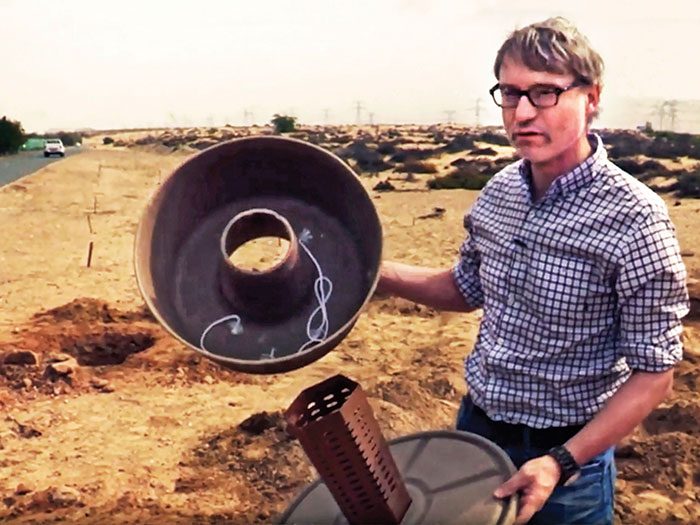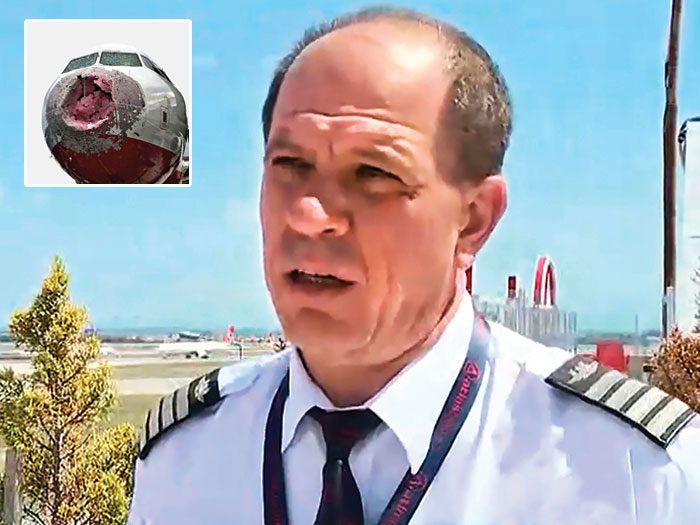Good News
Some of the positive stories coming our way

Helping trees grow
Environment Dutch engineer Jurriaan Ruys has invented an ingenious way of restoring vegetation to arid regions of the world. His cheap and simple ‘cocoon’ allows young trees to survive long enough in dry conditions to establish root systems. And it’s proving extremely successful.
Just three years after he completed the first prototype, his invention has been adopted in 20 countries around the world, with 250,000 trees planted.
The cocoon is shaped like a doughnut and made from biodegradable waxed paper. Each sapling is planted in a holder through the center, with enough water to sustain it in its first months. The water is fed to the tree via a wick, but only in small amounts, so the tree is encouraged to put down roots. “We know if we can get them through the first one or two years, they will survive,” says Ruys.
In a recent project in the desert regions of Spain, where other attempts to grow trees had managed a success rate of only 10 to 20 percent, the cocoon provided a 95 percent survival rate.
Gay convictions overturned
Society The German parliament has voted to quash the convictions of 50,000 men who were sentenced for homosexuality under a 19th century law that was rigorously enforced during the Nazi era—and which continued after World War II.
“Back then, you lived with one foot in prison,” remembers 74-year-old Fritz Schmehling, who was convicted under the law as a teenager. He is one of around 5,000 men who fell victim to the statute who are still alive. All will now receive a lump sum of 3,000 euros, as well as 1,500 euros for each year they spent in prison.
The change comes after decades of lobbying by victims and activists. Registered partnerships between same-sex couples were legalized in 2001 in Germany, but the country has yet to grant the full marriage rights found in many EU states.
Combating urban poverty
Welfare Barcelona, Utrecht and Helsinki are taking part in a novel social experiment aimed at alleviating urban poverty. The poorest residents will be given grants in different forms by the EU for two years to lift them above the breadline.
The idea is to find out what difference is made to a household once the basic costs of living are covered, with the ultimate goal of developing more efficient welfare services.

Blinded pilot beats the storm
Heroes The Airbus A320 with 127 passengers on board was just 10 minutes into its flight from Istanbul to Cyprus when it encountered a violent freak storm. Hailstones the size of golf balls lashed the plane, destroying its nose, smashing its windshield and disabling its autopilot.
Despite losing vision from the cockpit, Ukrainian captain Alexander Akopov didn’t panic. The veteran pilot asked permission from Istanbul’s Ataturk airport to return and attempt a ‘blind’ landing.
As the plane approached the runway, passengers screamed in fear for their lives. But Captain Akopov used his experience, relying on instrument readings and guidance from the control tower, and brought the plane home safely—to applause from waiting emergency services.
“The passengers are alive. It is normal. This is our professional reliability,” the modest hero said afterwards. He has since been awarded Ukraine’s Order for Courage.
Sources: Environment, The New Yorker, 11.7.17. Society: The Guardian, 22.6.17. Welfare: The Local (Spain), 1.6.17. Heroes: Daily Telegraph, 31.7.17



